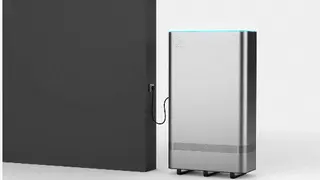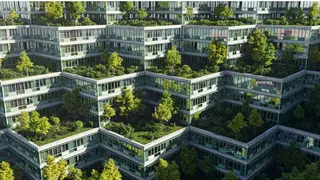A Fortune 500 firm, Ecolab is a $13-billion US major that provides solutions and on-site services to promote safe food, maintain clean environments, and optimise water and energy use for customers across the food, healthcare, energy, hospitality and industrial sectors in over 170 countries around the world. It essentially helps companies in diverse businesses produce more from less.
BusinessLine recently caught up with Ecolab Country Head and Managing Director, Mukund Vasudevan, in Delhi. Excerpts from the interview.
Ecolab has had presence in India for a while. Tell us about its journey here…
Ecolab came to India around 2010, but before that one of its subsidiaries, NALCO Water, which Ecolab bought globally in 2011, was here from 1998. So, we have been present in India for 20-plus years.
Ecolab works in two broad segments in India — industrial and institutional. Industrial is everything from power plants to paper plants to bottling plants to steel plants. Institutional could be hotels, restaurants, hospitals, schools, among others.
On the industrial side, what we essentially do is to help companies produce more with less. Say, producing more steel with less water or more beverage with less water. We have included a part of our hygiene business — particularly that associated with food, beverages and pharma sector — under industrial sector. The reason we have separated out that way is because hygiene in food and beverage and pharma sectors uses water. We can optimise both water and hygiene operations in these sectors if they are clubbed together.
And then the second segment is institutional business, which is primarily hygiene and sanitation related. But our hygiene solutions vary all the way from very high-clean rooms for a vaccine manufacturer to a restaurant in a five-star hotel or a quick service restaurant like, say, Cafe Coffee Day.
And in water, we do everything from cleaning the source of water to waste water to anything water touches along the way — it could be a boiler or a cooling tower. And what we do is optimise each one of those operations in such a way that they end up using less water. Our philosophy essentially is to focus on reducing water consumption before we start thinking about recycling water. The less you use, the less you have to recycle, which means you also save money on big capital projects.
What we offer most of our customers on both the water and hygiene front is that whatever you spend with us, you will get more than 100 per cent return through saving water or energy. In a majority of cases we are able to do that.
In many cases, saving water would mean nothing because the cost of water may be minimal. But by saving water, you pump less water and your energy cost comes down. In some, it is much more complicated. For example, in a steel plant. In the steel-making process, one of the things they do when the steel bars come out of the blast furnace is to spray water on them. If the quality of the water is poor, two things can happen. One, the nozzles may get clogged, leading to uneven spraying which, in turn, would increase the rejects. Second, bad quality water results in developing cracks in these bars. We do a lot of predictive work using sensors which would predict the propensity of nozzles to scale or the propensity for a steel bar to get bad and prevent it from happening. This helps reduce downtime and thus improve productivity. Similarly, where cooling towers used in buildings like hotels are concerned. If you let the circulating water scale the pipes, the pumping needs to be more rigorous, requiring more energy. So, when we tell the hotel management that they can save water they are not much enthused, but when you tell them they can save 10 per cent of the energy cost, their eyes light up. That helps in getting them to invest in technology; saving water then becomes a by-product.
Who are your customers in India?
We have around 2,000 customers here. Most of the top companies are our customers. More importantly, we retain 97-98 per cent of them.
What kind of growth have you been seeing in India?
We target a double-digit growth rate and we have pretty much been at that. We try to maintain a growth of twice the GDP growth, and we come close to that. The reason is that we are diversified across industries. Besides, there’s an increasing awareness about water and hygiene. So, this helps our industry overall.
What are the major concerns or bottlenecks you face as a business?
The opportunities are much more than the concerns. The macro in India are very good. Overall economy, while you may complain bitterly about it, is still way above most countries in the world. Second, there is an increasing awareness amongst industry that water is not just a green thing to do, their business continuity actually depends on it. Suppose a power plant or a beverage plant or a distillery has to shut down in summer months because they don’t have enough water, they suddenly realise that they have to use less water. Besides, the government is also getting strict on water and regulatory pricing is going up. On the hygiene side, I would say we are probably 3-4 years behind developed countries. While large companies are of course focused on hygiene, smaller ones are not yet. The awareness is still created by push rather than pull.
How safe are the chemicals used by you?
All of the chemicals we use are very eco-friendly. They are green to the extent possible. Especially those used in hotels. Two things we do which are different than competitors. First, a lot of the chemicals are shipped and transported in drums as concentrates or solids, so you ship a much larger volume and your plastic consumption comes down significantly. And in solids, we actually don't need to use plastic at all. It’s a solid block.
The second thing we do is green chemicals, which is in two ways. One, you need to use less to get the same results. The second is to ensure that the chemicals themselves are biodegradable.








Comments
Comments have to be in English, and in full sentences. They cannot be abusive or personal. Please abide by our community guidelines for posting your comments.
We have migrated to a new commenting platform. If you are already a registered user of TheHindu Businessline and logged in, you may continue to engage with our articles. If you do not have an account please register and login to post comments. Users can access their older comments by logging into their accounts on Vuukle.